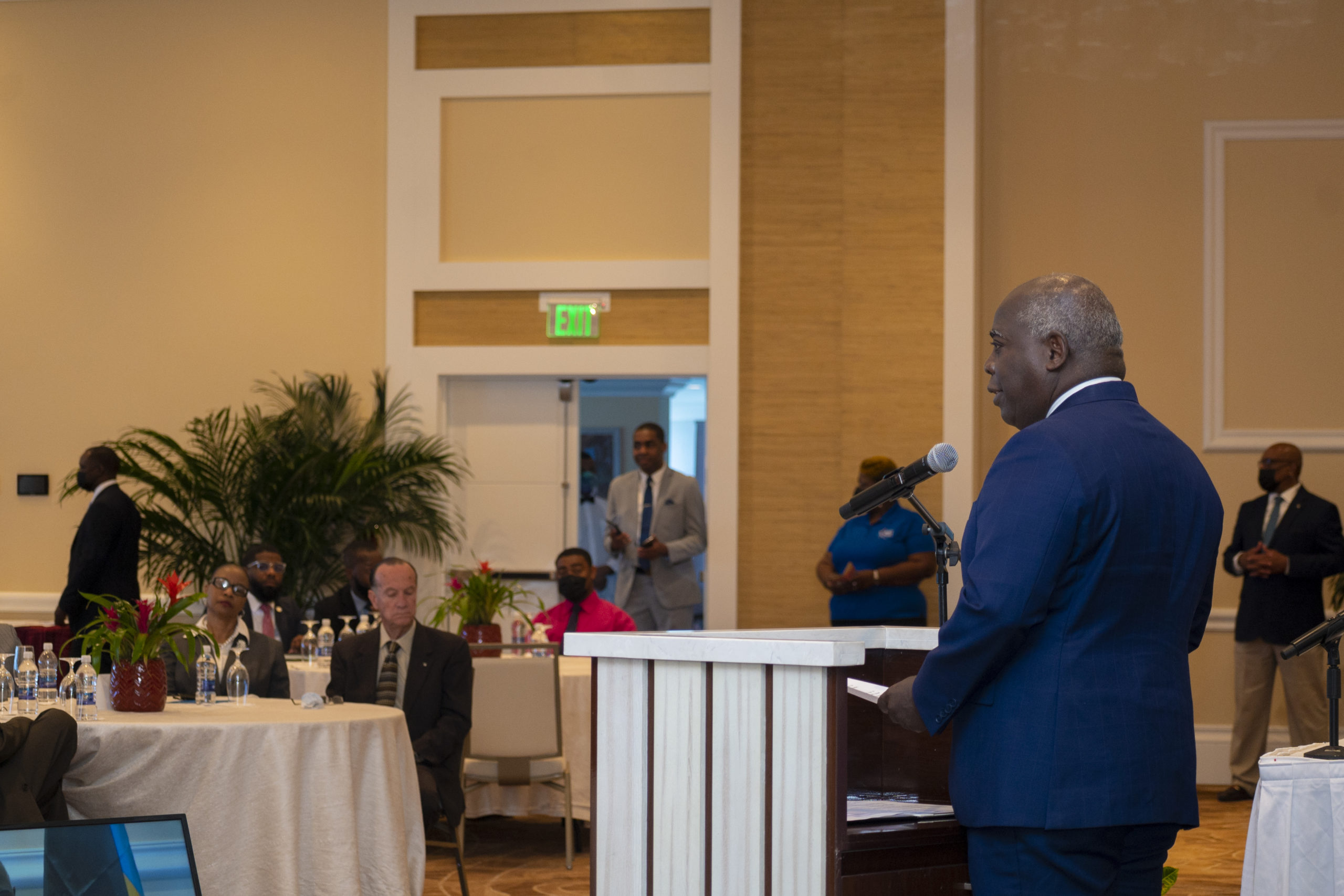Ladies and Gentlemen: Good Morning.
Today’s event is not only timely but necessary.
Even in the farthest, most remote regions of the world, information technology has reached into the daily lives of most inhabitants of our planet.
We have come to rely on technology to help us educate our youth, care for the sick, secure our borders and neighborhoods, cultivate and distribute our food, design and build our homes, travel from land to land, and so on.
It almost goes without saying, that any serious effort to promote growth and national development must now include the infusion of Information Technology into the public sector.
Ambitions about e-Governance can no longer be merely an option. In order to meet the expectations of our citizens, all public services need to take full advantage of the transformative potential of technology.
And so it must be in our Bahamas.
In our ‘Blueprint For Change’, my administration promised to deliver a digital revolution.
And a fundamental path to providing the best service to our people, has to include making it as easy as possible for the Bahamian people to interact and transact with their government.
This means, for example, that requesting a certified birth certificate, applying for residency or a work permit, renewing a driver’s license, applying for a passport, or a government job or scholarship, and paying for these services, ought to be easily accessible from personal computers or mobile devices.
My vision, and hence your charge, is to ensure that government functions as efficiently as possible, and that each ministry, department, and agency of the government, discharges its duties and obligations to serve the Bahamian people in a friendly, accessible, secure, and reliable digital environment.
The advent of digital transformation and the rise in mobile computing, now allows us to to fulfill those obligations and commitments online, in an integrated and secure electronic environment, and from multiple devices and locations, as opposed to in person.
However, for any of it to work, we need ALL stakeholders to buy into our digital agenda.
But cursory buy-in alone is not sufficient.
This must be accompanied by active participation, intelligent engagement, and clear-eyed leadership.
And just as the software across multiple ministries, departments and agencies, will be digitally programmed to communicate with one another, our people need to do the same: to talk to each other, plan, work and troubleshoot with each other, so that we can achieve our common goal.
If you have not done so as yet, it is critical that each of you familiarizes yourself with the policies in our Blueprint.
Our mandate from the Bahamian people rests on promises that are ambitious, detailed, and bold.
Among other things we have pledged:
To continue progress in the digitization and automation of government departments and agencies;
To continue to advance the cashless process of making payments for government services;
To provide free wifi in designated community centers and public parks;
To facilitate the financial technology (FinTech) revolution;
To provide a regulated environment for cryptocurrencies and blockchain technology;
To create eGovernment procurement platform; and
To create a digital national identity card.
In respect of this last initiative, we consider that the creation of a National e-Identity System (NIS) and the Digital National Identity Card as fundamental to the government’s ability to provide eGovernment services. It is an essential part of the framework upon which information and communications technology projects can be advanced.
This view is shared by The World Bank’s sponsored initiative of Identification For Development (ID4D), which recognizes the “enabling and transformational role” a national identification system has in achieving Sustainable Development Goals (SDGs), and its role in enhancing people’s lives.
I understand that we are nearing the on-boarding of a Digital National Identity Expert who will be responsible for developing a strategy, roadmap, and action plan for the phased implementation of the National Digital Identity System.
I look forward to the rollout of the NIS over the next 10 months, and the subsequent distribution of the National e-Identity Card to residents of the Bahamas in early 2023.
My thanks to Minister Michael Halkitis and Parliamentary Secretary Wayde Watson, and their team at the Ministry of Economic Affairs, for organizing this symposium today.
I trust that you leave today, even more fully united behind our efforts to realize our vision of a digitally transformed Bahamas, one that helps to bring about a New Day for our beloved country.
Thank you!
